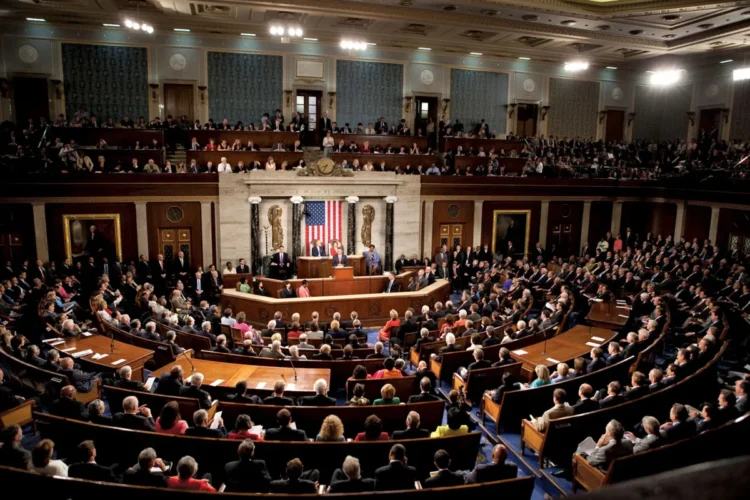The US House of Representatives has approved a new bipartisan financial services bill aimed at addressing the use of cryptocurrency for illicit activities.
The bill, passed on Monday, July 22, 2024, seeks to establish a government working group to evaluate the role of cryptocurrencies in terrorism and money laundering.
The bill’s sponsor, Rep. Zach Nunn (R-Iowa), emphasised the importance of ensuring that Americans have secure access to emerging payment technologies, stating,
“This bipartisan bill will help ensure the United States is prepared to address security risks and prevent illicit money laundering while also protecting consumer choice for all Americans. We must do both simultaneously to ensure the long-term integrity of digital assets.”
The temporary working group will be formed under the Treasury Department and include industry experts such as representatives from blockchain intelligence firms, research institutions, and fintech companies. This group will be tasked with researching cryptocurrency transactions and developing strategies to prevent their misuse by bad actors in terrorist financing and other illegal activities.
During a speech on the House floor, Rep. Nunn further emphasised the critical importance of the legislation, asserting that it is essential for ensuring that
“the next generation of financial and internet technology is developed right here in America.”
Notably, the bill comes on the heels of the Iowa Attorney General, Brenna Bird, filing of an amicus brief asserting that the United States Securities and Exchange Commission (SEC) is overstepping its regulatory authority over the cryptocurrency sector.
Supported by attorneys general from Arkansas, Indiana, Kansas, Montana, Nebraska, and Oklahoma, the brief argues that the SEC’s actions are stifling innovation and undermining state laws vital for consumer protection. It raises constitutional concerns, citing the Major Questions Doctrine and federalism principles, and contends that regulating a vast industry like cryptocurrency requires explicit congressional authorisation, which the SEC lacks.
The brief also claims that the SEC’s reliance on enforcement actions instead of establishing a clear legislative framework violates the Administrative Procedure Act (APA).
If you want to read more news articles like this, visit DeFi Planet and follow us on Twitter, LinkedIn, Facebook, Instagram, and CoinMarketCap Community.
“Take control of your crypto portfolio with Markets PRO, DeFi Planet’s suite of analytics tools.”





















